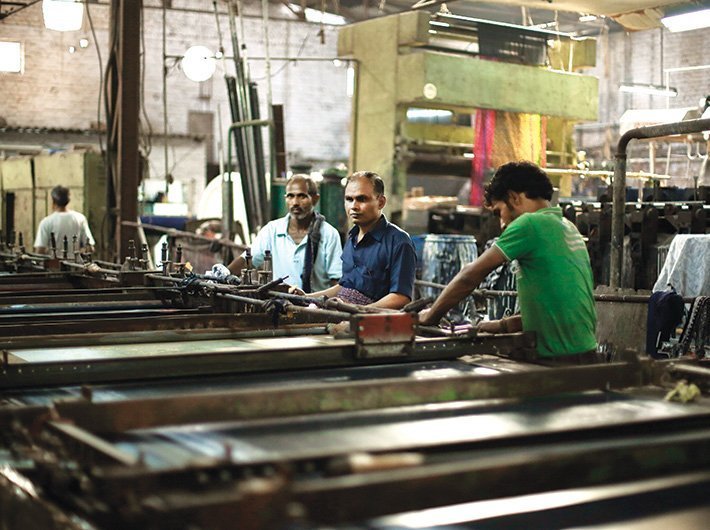Successive Indian governments have been stuck with the fetish of 51 percent ownership and have only flirted with the idea of privatisation, said professor Vijay Joshi
A wide swathe of economic activities was nationalised in India after independence, and especially during Indira Gandhi’s prime ministership, for predominantly political reasons. But state ownership was also justified as a way to correct market failures, increase investible surpluses, and pursue wider social goals. The results have been blatantly unsatisfactory, said professor Vijay Joshi, emeritus fellow, Merton College, Oxford.
Delivering the L.K. Jha Memorial Lecture, prof Joshi said that public sector managers who were given a multiplicity of aims, and were backed by the deep pockets of the state, lacked the rewards and penalties to innovate, cut costs, raise productivity, and respond to consumer preferences. At the same time, there was a good deal of unproductive scrutiny by investigative agencies, which served to make managers risk-averse, and opt for a quiet life.
“Efficiency was also compromised by the incestuous relationship between nationalized industries and the government, which opened the door to political manipulation in operational matters as well as board appointments. Supervision of public sector enterprises (PSEs), via ‘memoranda of understanding’ with the government, has not increased productivity.
“What has worked, up to a point, is allowing private-sector entry. Even so, success has been far from complete. This is because the logic of competition requires that the government maintain a level playing field between PSEs and private companies, which includes allowing PSEs to die if they continually underperform. Not surprisingly, the government has been unwilling and unable to follow such a path,” the professor said at the lecture that hosted by the Reserve Bank of India.
Joshi said that the consequences can be seen in the most recent Public Enterprises Survey, which makes depressing reading. One-third of the 244 non-financial Central PSEs made losses in 2015/16; and of the 78 loss-makers, more than a half made losses for three years in row. There are also several perennial loss-makers, including Air India and two public telecom companies; and some profitable companies such as Coal India owe their performance not to efficiency but to their monopoly positions. The profitability of Central PSEs, as a whole, has been declining steadily for the past 10 years. In addition to Central PSEs, there are around 1000-odd State PSEs, of which two-thirds make losses, including notably the zombie electricity distribution companies. The aggregate losses of all PSEs, central and state, amount to about one per cent of GDP annually.
He went on to say that so far, successive Indian governments have been stuck with the fetish of 51 percent ownership and have only flirted with the idea of privatization (though it appears that Air India is at last being considered for strategic sale). Most sell-offs have taken the form of so-called ‘disinvestment’, i.e. the sale of small slices of state-owned companies.
“Unlike privatisation, disinvestment does not bring the full advantages of a change in managerial incentives and autonomy. The sale price is also bound to be adversely affected when the government does not relinquish control, which means that the minority sales have been made at unfavourable prices. It is high time the government grasped the nettle of mounting a significant programme of privatization, at least of those PSEs that make losses or meagre profits,” he added.
Does banking constitute a special case?, he asked and answered: “I do not think so.”
“Banking is amenable to competition; it is not a ‘natural monopoly’, so it is not a natural candidate for state ownership. Of course, there is some truth in the view that state-owned banks inspire confidence in depositors, thereby encouraging financial savings and making bank-runs less likely. However, in India, these considerations have been decisively offset by the downsides of state ownership. There is clear evidence that the performance of India’s public sector banks (PSBs) is sub-standard. The situation has got worse since the global credit crisis: stressed advances of PSBs now stand at around 16 per cent of total advances, compared with about 4.5 per cent in private banks. With other financial and productivity indicators, it is same story.”
The professor noted that the basic problem of poor governance in PSBs will remain after recapitalisation, with a high chance of a return to square one in future.
“Radical reform is thus imperative, and in this context privatization surely has a major role to play. A triple-track approach would be desirable. Firstly, some non-viable PSBs should be forced to become ‘narrow’ banks. Secondly, in some viable PSBs, governance should be radically reformed, while retaining the state’s controlling stake. Thirdly, some viable PSBs should be privatized quite quickly. To modernize the banking system and improve its overall efficiency, India clearly needs large private sector banks to compete with large public sector banks. An essential first step would be to repeal the Bank Nationalization Act and bring PSBs under the Companies Act. This would give the government the flexibility to reduce ownership to any extent it chooses,” he said.
Read the full lecture: India’s Economic Reforms: Reflections on the Unfinished Agenda
